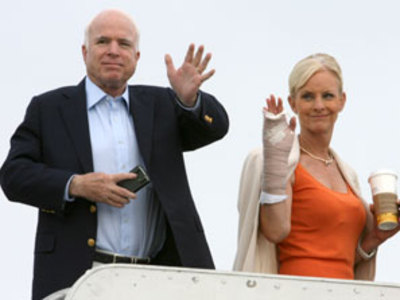Five Things The Biden Pick Shows
Posted by Heather Hurlburt
1. National security is now best understood as a litmus test or threshold issue for many voters; they may not decide based on it alone, but if you don't give off a sufficient aura of seriousness, you can't close the deal, especially if you are a progressive.
2. Taking the time to strategize about the links between national security and domestic policy/politics is, as Madeleine Albright used to say, not just the right thing to do but the smart thing. Joe Biden built an entire primary campaign around being the national security guy -- and being the guy with the loudest, most heartfelt critique of Bush policies. The attack-dog strategy, and a willingness to go a little farther than the next guy, wasn't necessarily what you'd expect from a card-carrying member of the national security establishment. But it worked. In my experience in Michigan and Iowa, that's what his fans remember him for. Might he just be the reverse Scoop Jackson of the 21st century?
3. Nice guys don't finish last, especially when, as Moira notes, they put good teams together to help them. The two parts of the Biden legend I'll personally vouch for are the quality of the staff, since I know many and hired one; and the riding Amtrak home to the family ever night. For a hard year in the 1980s my family thanked our lucky stars that Joe was keeping that Amtrak stop open for our dad, too, as he did the same commute.
4. American lives do have second, third and fourth acts. Sorry, F. Scott.
5. The mid-atlantic region is the new epicenter of cool, or at the very least the bellwether of America right now. You've got old middle class (industrial, union jobs) and new middle class (insurance, casinos, pharmaceuticals). You've got old-line Catholic Reagan Democrats and brand-new Catholic Hispanic immigrants; you can drink a latte to wash down your hoagie, arugula and funnel cakes. Then you will feel good, bloated and uneasy all at once. That's my America. If you don't believe me, check out my friend Lynne Raughley's Lives column in tomorrow's Times, about growing up in Atlantic City. Coincidence?


